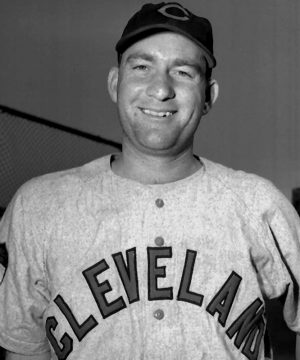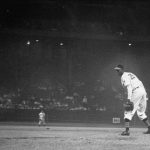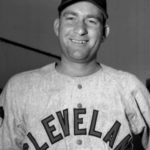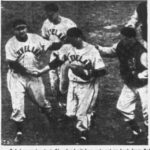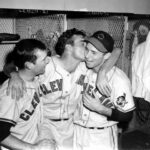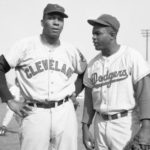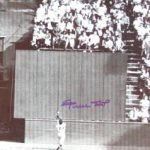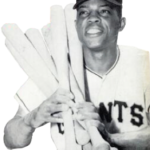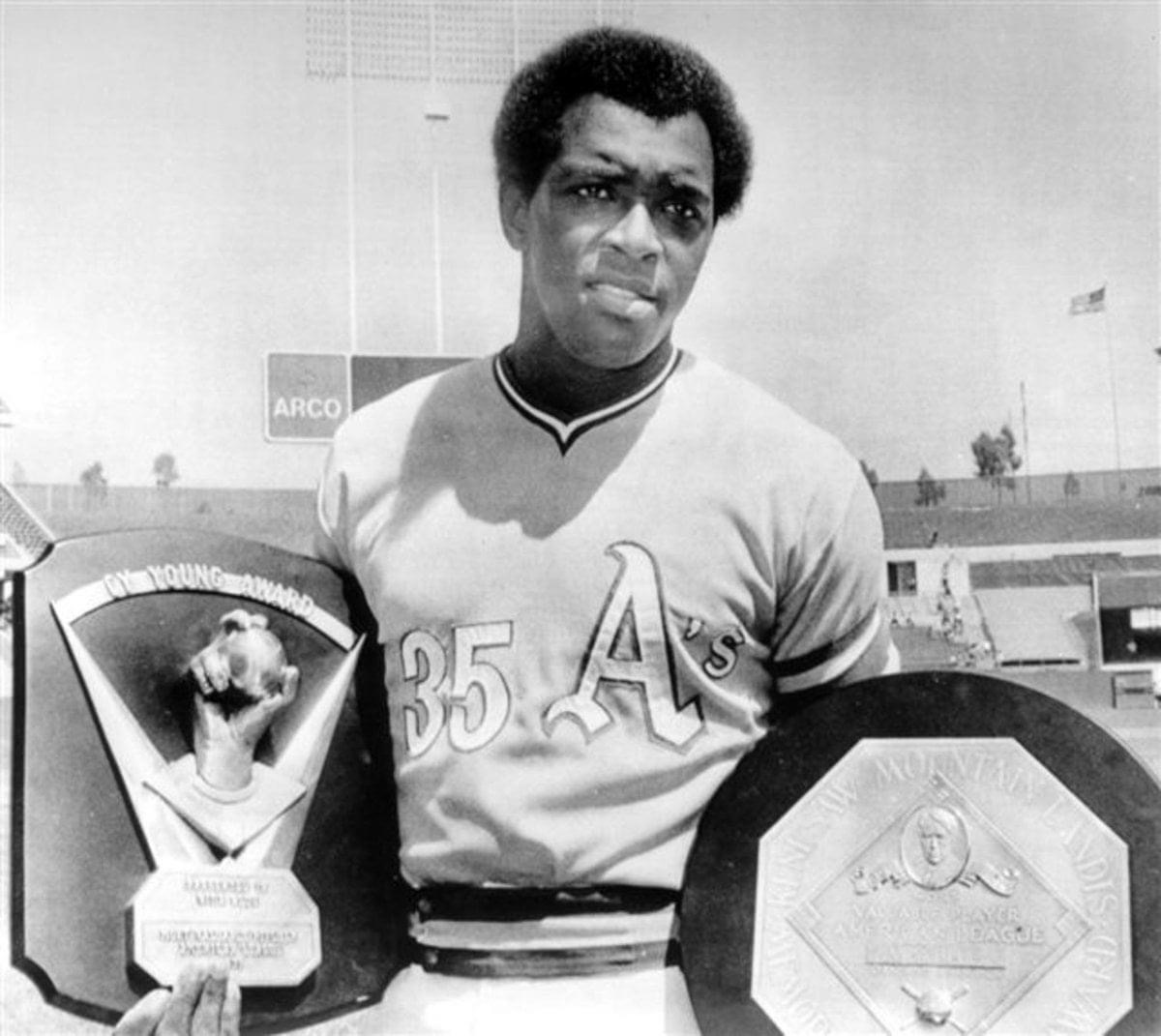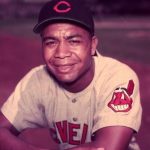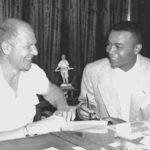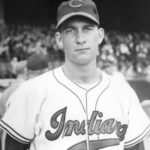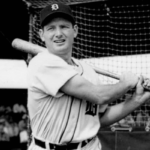Bob Lemon Stats & Facts
VINTAGE BASEBALL MEMORABILIA
Bob Lemon
Position: Pitcher
Bats: Left • Throws: Right
6-0, 180lb (183cm, 81kg)
Born: September 22, 1920 in San Bernardino, CA
Died: January 11, 2000 in Long Beach, CA
Buried: Cremated
High School: Woodrow Wilson HS (Long Beach, CA)
Debut: September 9, 1941 (9,101st in major league history)
vs. PHA 1 AB, 0 H, 0 HR, 0 RBI, 0 SB
Last Game: July 1, 1958
vs. CHW 1 AB, 0 H, 0 HR, 0 RBI, 0 SB
Hall of Fame: Inducted as Player in 1976. (Voted by BBWAA on 305/388 ballots)
View Bob Lemon’s Page at the Baseball Hall of Fame (plaque, photos, videos).
Full Name: Robert Granville Lemon
View Player Info from the B-R Bullpen
Nine Players Who Debuted in 1941
Stan Musial
Phil Rizzuto
Bob Lemon
Vern Stephens
Dave Philley
Jim Hegan
Danny Murtaugh
Dick Wakefield
Virgil Trucks
The Bob Lemon Teammate Team
C: Jim Hegan
1B: Mickey Vernon
2B: Bobby Avila
3B: Al Rosen
SS: Lou Boudreau
LF: Dale Mitchell
CF: Larry Doby
RF: Rocky Colavito
SP: Early Wynn
SP: Bob Feller
SP: Mike Garcia
SP: Mel Harder
SP: Herb Score
RP: Hal Newhouser
M: Al Lopez
Notable Events and Chronology for Bob Lemon Career
Biography
The story of Bob Lemon is the tale of three careers: as a mediocre infielder prior to World War II, as a star pitcher during post-war era, and finally as a successful major league manager. Prior to World War II, Lemon had struggled as a light-hitting third baseman and made the switch to the mound on the suggestion of Cleveland manager Lou Boudreau. Lemon learned to pitch on the job with the Indians and eventually won 20 games seven times. A sinker-ball specialist, Lemon teamed with Bob Feller, Early Wynn, and Mike Garcia to form one of the greatest pitching staffs in baseball history. He retired in 1958 with 207 wins, all but 10 of them won in a ten-year span
Bob Lemon Biography
The easygoing Lemon learned to pitch in the major leagues and went on to become one of the most successful righthanders of the post-WWII period. He was enshrined in the Hall of Fame in 1976. In two trials as a third baseman before the war he failed to stick with the Indians because of his mediocre hitting. He showed a strong arm in the field, but his throws had a natural sinking effect. Upon his return to Cleveland after three years in the Navy, he turned to pitching at age twenty-six.
Although bothered by wildness, Lemon showed enough promise in his first season on the mound (2.49 ERA in 94 innings) to continue the experiment. In 1947 he was 11-5 and became the Indians’ second most effective starter behind Hall of Famer Bob Feller.
Cleveland won the 1948 pennant, as Feller, Lemon, and rookie Gene Bearden combined for 59 wins. Lemon, at 20-14, led the AL in shutouts (10), complete games (20), and innings pitched (294). On June 30, he threw a no-hitter to top the Tigers 2-0. In the World Series, he picked up two wins (1.65 ERA) as the Indians defeated the Braves.
Lemon became the leader of the outstanding Indians pitching staffs of the 1950s that also included Feller, Early Wynn, Mike Garcia, and later Herb Score. In a remarkably consistent nine-year stretch (1948-56), Lemon won 20 or more games seven times. He missed the magic number only in 1951 with 17 victories and 1955 when his 18 wins topped the league. A workhorse, he led in complete games five times and innings pitched four. TSN named him the Outstanding AL Pitcher three times (1948, 50, 54).
The 1954 Indians set an AL record with 111 victories (in 154 games) as Lemon led the pitching staff with a 23-7 mark. He opened the World Series against the Giants and took a 2-2 tie into the tenth inning before giving up a three-run home run to pinch hitter Dusty Rhodes. When the Indians lost the next two, manager Al Lopez brought Lemon back on two days’ rest, but he was shelled early as the Giants swept the Series.
Lemon’s money pitch was his sinking fastball. He led the AL in strikeouts with 170 in 1950, but he was most effective when opposing batters were beating the ball into the dirt. Always slightly wild, his season bases on balls and strikeout marks were usually similar, as were his career bases totals of 1,251 walks and 1,277 strikeouts.
Lemon was considered to be one of the best-hitting pitchers of his time and was often used as a pinch hitter, totaling 31 hits in 109 pinch-hit appearances (.284). His 37 home runs lifetime is just one behind Wes Ferrell’s record for pitchers, and his 7 HR in 1949 ties him for second on the pitchers’ season list.
After leaving the majors, Lemon pitched briefly in the Pacific Coast League, then turned to scouting, coaching, and managing. In 1966 TSN named him Minor League Manager of the Year when his Seattle team won the PCL championship. From 1970-72 he managed the Kansas City Royals, with a 1971 second place the team’s best mark, earning him Manager of the Year honors. He took over the Chicago White Sox in 1977, managing another mediocre team to a strong finish, and again won Manager of the Year. But Lemon was replaced the next season with the team in fifth place.
A few weeks later, Lemon began a bewildering series of ups and downs with the New York Yankees. First, he succeeded fiery Billy Martin as skipper of the third-place Yankees. The team responded to his relaxed leadership and finished the regular schedule tied with the Red Sox for the division title. New York won the one-game playoff on Bucky Dent’s home run. After taking the LCS, Lemon’s Yankees went on to a World Series win over the Dodgers.
Midway through the 1979 season, Martin replaced him as Yankee manager. In 1981, when the player strike split the season into two parts, Gene Michael managed the Yankees to a first-half division lead, but when the team faltered in the second half after the strike, Lemon returned as manager. He took the Yankees to victory in the divisional playoff between the Yankees and second-half winner Milwaukee and then a three-game sweep of Oakland in the LCS. The Yankees lost the World Series to the Dodgers in six games. When New York started slowly in 1982, Lemon was again replaced as manager, this time by Michael.
@ET-DC@eyJkeW5hbWljIjp0cnVlLCJjb250ZW50IjoicG9zdF90YWdzIiwic2V0dGluZ3MiOnsiYmVmb3JlIjoiTGVhcm4gTW9yZSBhYm91dCB0aGUgdGVhbXMsIHBsYXllcnMsIGJhbGwgcGFya3MgYW5kIGV2ZW50cyB0aGF0IGhhcHBlbmVkIG9uIHRoaXMgZGF0ZSBpbiBoaXN0b3J5IC0gLSAtIC0gLSAtIC0gIiwiYWZ0ZXIiOiIiLCJsaW5rX3RvX3Rlcm1fcGFnZSI6Im9uIiwic2VwYXJhdG9yIjoiIHwgIiwiY2F0ZWdvcnlfdHlwZSI6InBvc3RfdGFnIn19@
Played For
Cleveland Indians (1941-1958)
Managed
Kansas City Royals (1970-1972)
Chicago White Sox (1977-1978)
New York Yankees (1978-1982)
Similar: Allie Reynolds, Tommy Bridges, Mike Garcia
Linked: Lou Boudreau, Bob Feller, Early Wynn, Mike Garcia, Billy Martin
Best Season, 1948
He had a lot of very good season, but we’ll choose ’48 because of his pair of victories in the Tribe’s World Series defeat of the Braves.
All-Star Selections
No-Hit Fame
6/30/1948: For CLE (A) vs. DET (A), 2-0 at DET. 9 innings pitched.
Post-Season Appearances
1948 World Series
1954 World Series
Factoid
In 1949, Bob Lemon hit seven home runs and had a .556 slugging percentage in 108 at-bats. On the mound during his entire career, he allowed opposing hitters just 19 home runs in 1,050 at-bats.
Full Bio
Prior to World War II, Lemon struggled as a light-hitting third baseman. With the Indians he made the switch to the mound on the suggestion of manager Lou Boudreau, who recognized Lemon’s athleticism and naturally powerful arm. Lemon learned to pitch on the job with the Indians and eventually won 20 games seven times for the team. A sinker-ball specialist, Lemon teamed with Bob Feller, Early Wynn, and Mike Garcia to form one of the greatest pitching staffs in baseball history. In 1948 he won 20 games in the regular season and two more in the Fall Classic for the World Champion Indians. In 1954 he was 23-7 as Cleveland won the pennant and rolled to an American League record 111 victories. He retired in 1958 with 207 wins, all but 10 of them won in a ten-year span.
After his playing career, Lemon coached and managed for several teams before landing his first major league managerial job in Kansas City. He guided the Royals to their first winning season in 1971, for which he earned AL Manager of the Year honors, but was fired following the 1972 season. Five years later he latched on with another young team: the Chicago White Sox. He improved the Sox record by 26 games in 1977, winning his second Manager of the Year Award, but again he was axed the following season after Chicago posted a 34-40 record in the first half. A few weeks later he was hired by the New York Yankees to replace troubled manager Billy Martin. For the first time, Lemon had a talented ball club of veteran players, and he responded by guiding them to a 48-20 record to catch the stunned Boston Red Sox for the lead in the American League East. The Yankees defeated Boston in a one-game play-off to advance to the post-season, then beat the Royals and Dodgers to win the 1978 World Series title.
When the Yankees struggled in the first part of 1979, Lemon was fired by manic owner George Steinbrenner. Amazingly, the unflappable Lemon maintained a good relationship with Steinbrenner, and when the Yankees needed a boost late in 1981, he was brought back to skipper the team. Despite managing just 25 games for a dismal record of 11-14, Lemon moved on to the post-season thanks to the split season format, which the Bombers had won in the first-half. New York dispatched the Brewers and A’s and won the first two games of the World Series against the Dodgers, only to lose four straight. Lemon survived a few weeks into the ’82 season before Steinbrenner dismissed him one last time. He had managed just over one full season of games (172) for the Yankees, winning 99 times for a .576 winning percentage.
Where He Played: Starting pitcher (350), relief pitcher (110), outfield (14), third base (2)
Feats: On June 30, 1948, Lemon pitched a 2-0 no-hitter against the Detroit Tigers.
Milestones
On September 11, 1956, almost exactly 15 years to the day that he debuted in the big leagues, Lemon earned his 200th victory. He defeated the Baltimore Orioles, 3-1.
All-Star Selections
1948 AL
1949 AL
1950 AL
1951 AL
1952 AL
1953 AL
1954 AL
Replaced
Mel Harder, who was in his final season in 1947, when Lemon joined the Cleveland rotation.
Replaced By
As Lemon was winding down, Gary Bell and Mudcat Grant were emerging in the Cleveland rotation.
Best Strength as a Player
Lemon was often used as a pinch-hitter, putting up a lifetime PH mark of 31 hits in 109 at-bats (.284). Lemon’s 37 career home runs is second on the all-time career list, behind Wes Ferrell. On the pitching side, Lemon featured a nasty sinker.
Largest Weakness as a Player
Lemon had control problems throughout his career, walking as many as 120 batters four times. He averaged just under four walks per nine innings, which is almost exactly his strikeout average.
Other Resources & Links

